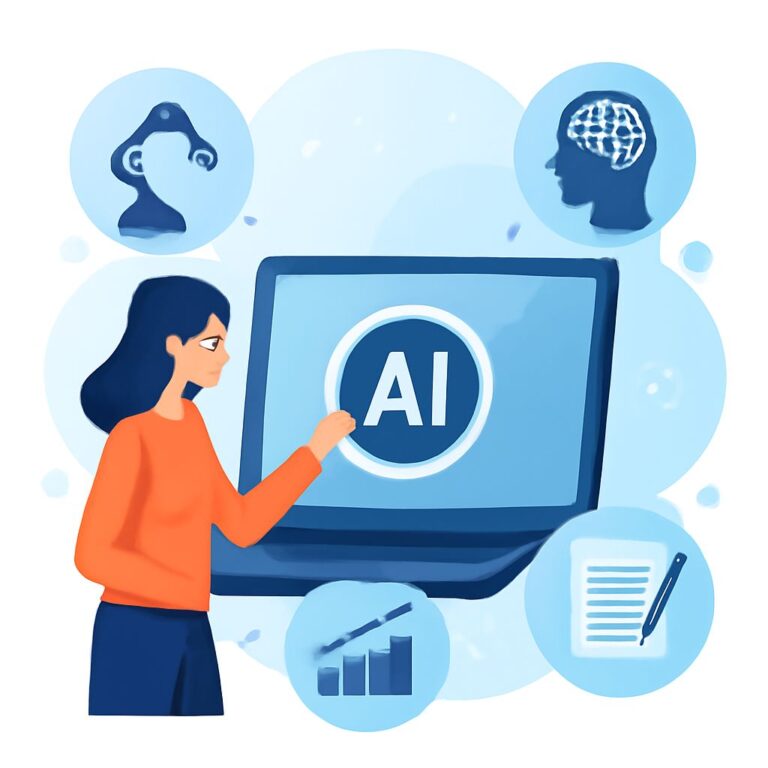Table of Contents
The Rise of AI
Artificial Intelligence (AI) has rapidly transformed from theoretical concepts to practical implementations. It now permeates various sectors globally, revolutionizing how businesses operate and driving significant efficiency gains. From healthcare to finance, AI solutions are morphing industries at an unprecedented rate, offering new opportunities and challenges.
The ability to master AI solutions is not just critical for technology companies but crucial for any business aiming to remain competitive in today’s fast-evolving landscape. As businesses strive to stay ahead, understanding and implementing AI-driven strategies will become a key differentiator.
Cutting-edge AI Solutions in Practice
The landscape of AI is diverse, with solutions emerging in predictive analytics, natural language processing, robotics, and more. These cutting-edge solutions are reshaping industries and creating new operational benchmarks across various sectors.
- Predictive Analytics: Businesses leverage predictive analytics to make informed decisions by analyzing historical data and predicting future outcomes. It is particularly useful in sectors like finance where anticipating market trends can lead to substantial financial gains. Moreover, in retail, predictive analytics can revolutionize inventory management by accurately forecasting demand, thereby reducing costs and improving customer satisfaction.
- Natural Language Processing (NLP): NLP technologies are becoming more sophisticated, enabling machines to understand and respond to human language effectively. This can enhance customer service through chatbots and virtual assistants that provide real-time support. NLP is also advancing in content creation and translation, allowing businesses to reach a broader audience with localized content efficiently.
- Robotics: In manufacturing and logistics, robotics powered by AI is optimizing operations by improving precision and efficiency in production processes. In healthcare, surgical robots assisted by AI are helping surgeons perform intricate procedures with enhanced precision, leading to better patient outcomes and lower risks.
Each of these solutions is pivotal in pushing the boundaries of what is possible today, enhancing productivity, and creating new realms of possibilities. As AI technology continues to advance, we can expect even more innovative solutions that will further integrate AI into our daily lives and business operations.
The Societal Impact of AI Solutions
As AI solutions become more embedded in businesses and daily life, their impact on society is profound. AI has the potential to solve complex global challenges such as climate change by optimizing energy usage and supporting the development of sustainable technologies. In healthcare, AI is making early detection of diseases more feasible, improving patient outcomes, and ultimately saving lives.
Furthermore, the automation of routine tasks through AI can lead to increased productivity and economic growth while also prompting a shift in job roles and skill requirements. It’s essential for societies to adapt by fostering education systems that prepare the workforce for an AI-driven future.
Navigating the Transition to AI
Implementing AI solutions requires a strategic approach. Organizations must evaluate their current capabilities and explore areas where AI can deliver the most impactful results. The transition also necessitates a commitment to building an infrastructure that supports AI-aided transformation while adhering to ethical and legal standards.
- Data Privacy: With AI relying heavily on data to function effectively, organizations must ensure robust data governance frameworks to protect sensitive information. Data privacy concerns require businesses to invest in advanced cybersecurity measures to safeguard against data breaches and misuse.
- Ethical AI: Developing AI systems that make ethical decisions is imperative to prevent biases and ensure fair outcomes. Ongoing discussions around AI ethics are shaping policies to guide responsible AI usage. By employing transparency and accountability in AI systems, businesses can build trust with consumers and regulators alike.
- Workforce Transformation: The rise of AI demands a shift in workforce skills. Organizations need to invest in reskilling their employees to handle new tools and processes that emerge with AI implementation. Creating a culture of continuous learning will empower employees to adapt to technological changes and innovate within their roles.
Preparing for the AI Future
As we move deeper into the AI era, businesses should engage in proactive planning to harness AI’s full potential. This involves collaboration across all organizational levels, from C-suite executives to front-line employees, to build an AI-driven culture.
Moreover, partnerships with technology providers, academic institutions, and industry consortia can facilitate knowledge sharing and foster innovation. Organizations that prioritize sustainable AI development will not only enhance their competitive edge but also contribute positively to society’s growth and well-being.
FAQ
What are the key sectors benefiting from AI solutions?
AI solutions benefit numerous sectors, including healthcare, finance, manufacturing, logistics, and customer service, by streamlining operations and enhancing decision-making. Healthcare utilizes AI for predictive diagnosis and personalized medicine; finance uses AI to enhance fraud detection and risk management; manufacturing benefits from AI-enabled quality control and predictive maintenance.
How can businesses effectively integrate AI into their operations?
Effective AI integration requires assessing current needs, ensuring data security, establishing ethical guidelines, and investing in workforce training to handle new AI tools. By clearly defining the objectives and expected outcomes of AI projects, businesses can identify key areas for deployment and measure success accurately.
What role does AI play in enhancing customer experiences?
AI enhances customer experiences by enabling personalized services and improving responsiveness. With AI-powered chatbots and virtual assistants, businesses can provide round-the-clock customer support, reducing wait times and increasing customer satisfaction.
Are there challenges in AI implementation, and how can they be managed?
Challenges in AI implementation include managing change within organizations, ensuring ethical AI use, and addressing data privacy concerns. These can be managed by fostering a culture of innovation, adhering to ethical guidelines, and investing in robust data protection systems. Transparency and open communication with stakeholders are also vital to navigating potential challenges effectively.









